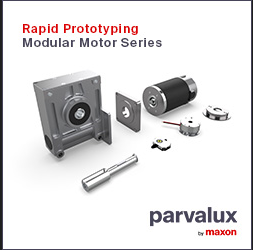Survey: IIoT Systems Implementation up Year over Year, Set to Reach 75% Deployment Rate in 2023
New report highlights key trends, challenges and benefits for IIoT strategies
HiveMQ, the global leader in enterprise MQTT solutions, today announced the findings of a new report in collaboration with IIoT World, "Building Industrial IoT Systems in 2024". The survey data provides insights into the trends in technology, processes, and politics of IIoT implementation.
350 professionals were surveyed across Automotive Manufacturing, Power and Utilities, Renewable Energy, Transportation and Logistics, Smart Cities, and more to share feedback on building IIoT systems. The results demonstrate that industries are embracing IIoT technologies and moving towards full implementation and deployment of IIoT solutions, up from 67% in 2022 to 75% in 2023.
As budgets for technology investments continue to shrink, more scrutiny is placed on the procurement and interoperability of new software and platforms. With 6 out of ten executives saying it is difficult to quantify investment in technology, more and more professionals are stuck in proof-of-concept purgatory. Industrial automation is no different — over a third of survey respondents said a key challenge for implementing IIoT systems is a lack of budget and uncertain ROI.
The pressures, challenges, and payoff of IIoT implementations provide an understanding as to why projects succeed or stall. Additional insights from the survey include:
Productivity and efficiency are top of mind for implementation
Increased productivity (29%) and improved Overall Equipment Effectiveness (OEE) (23%) are the top benefits companies expect to gain from implementing IIoT systems.
Hurdles for implementation include security, leadership and ROI
Leadership support (38%) and cybersecurity (35%) are the key challenges companies cite in implementing a new IIoT system.
A quarter of survey respondents believed that executive leadership (25%) should own the project while nearly a quarter of respondents (23%) believe that a project team combining both OT and IT expertise should spearhead the IIoT strategy.
MQTT has been identified as a key enabler for these IIoT projects, while data suggests Sparkplug is an emerging data framework.
MQTT (57%) and HTTP (58%) are considered to be essential data movement tools for fulfilling IIoT strategies.
Sparkplug is still in its infancy but 25% of companies say they have deployed or are looking at using Sparkplug, while 35% say they need to learn more about it.
Microsoft Azure (18%) is the leading cloud provider for IIoT systems, followed by Amazon Web Services (17%), and multi-cloud (14%).
"Industrial IoT systems provide the insights and visibility that can deliver incredible business results with the right execution. We see more and more companies improving productivity and showing ROI from their deployments which is highlighted in the survey," said Christian Meindering, CEO and Co-founder of HiveMQ. "Adopting MQTT and platforms like ours can help them combat technical challenges to successfully implement enterprise-grade IIoT systems built for flexibility, security, and scale."
For the full report, visit https://www.hivemq.com/info/building-industrial-iot-systems-in-2024.
About HiveMQ
HiveMQ empowers businesses to transform with the most trusted MQTT platform. Designed to connect, communicate, and control IoT data under real-world stress, the HiveMQ MQTT Platform is the proven enterprise standard and powers use cases in automotive, energy, logistics, smart manufacturing, transportation, and more. Leading brands like Audi, BMW, Honeywell, Liberty Global, Mercedes-Benz, Siemens, and ZF choose HiveMQ to build smarter IoT projects, modernize factories, and create better customer experiences. Visit hivemq.com to learn more.
Featured Product

Rapid Prototyping with the Modular Motor Series
Quick to configure. Quick to build. Quick to deliver. Parvalux understands the importance of getting product in the hands of customers quickly and efficiently. The Modular Range does just that allowing customers to configure their own solution, selecting motor and gearbox, adding encoders and brakes to create a solution perfectly suited for their specific applications such as conveyor belt systems, picking systems, parcel sorting equipment, pallet shuttles and automated storage and retrieval systems (ASRS). Read our modular range guide for specifics.
